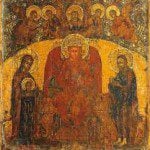Bishop Robert W. Finn’s recent conviction for gross mishandling of a child abuse case again underscores why church administration and pastoral care must be kept separate. Bishop Finn, Diocese of Kansas City-St. Joseph, is the first American Catholic official to be convicted for the attempted cover-up of an accused child abuser. Spiritual matters should be left to bishops and priests while parishioners should play a far greater role in administrative matters. There is an inability by church leaders, across Christian denominations, to make a distinction between the two.
Dostoevsky wrote in the Brothers Karamazov “there is no sin God cannot forgive because God’s love is infinite.” This is reflected in a pastoral role that includes forgiveness of sin. Clearly, this is not an administrative task, but speaks to the foundations of the faith of Christ’s unconditional love. Yet all too often it gets confused, consciously or subconsciously perhaps due to hubris, by wrongly interchanging spiritual forgiveness with administrative, day-to-day demands. They are worlds apart.
Bishop Finn’s conduct underscores the necessity of greater administrative oversight by fair, thoughtful parishioners who are better able to make a distinction between God’s love, grace, and justice and secular realities to protect children, monitor parish finances, and help keep church officials grounded who sometimes become intoxicated by ecclesiastical power.
Cardinal Carlo Maria Martini said in his last interview before his death, “Our culture has aged, our churches are big and empty and the church bureaucracy rises up, our rituals and our cassocks are pompous.” He called for changes starting with the pope down to the bishops. It is sage advice for all Christian leaders.
Emperor Constantine did Christianity a grave injustice when he made the faith the state religion. Its negative consequences throughout history have long been recorded and are still apparent today. The Christian faith does not, has never belonged to religious hierarchies – popes, bishops, metropolitans, cardinals, patriarchs – Catholic, Anglican, Orthodox, or other. Christianity belongs equally to everyone. To that end, as church attendance continues to drop, yet spiritual belief remains very high, it’s time to consider how to better separate pastoral care and administration, while empowering average believers who are justifiably distrustful of religious authority.
Paul is author of Lost Sense of Self & the Ethics Crisis.











